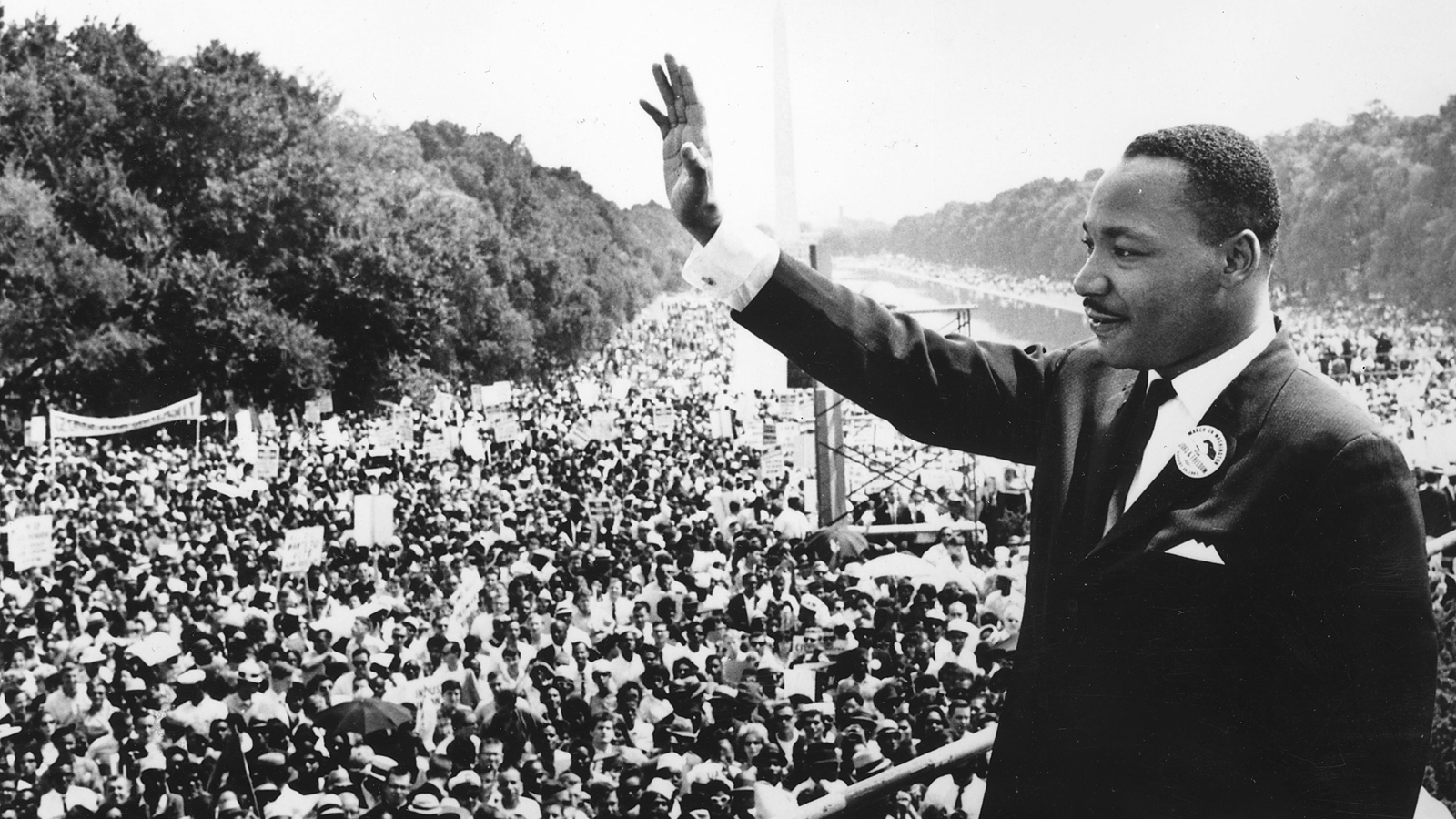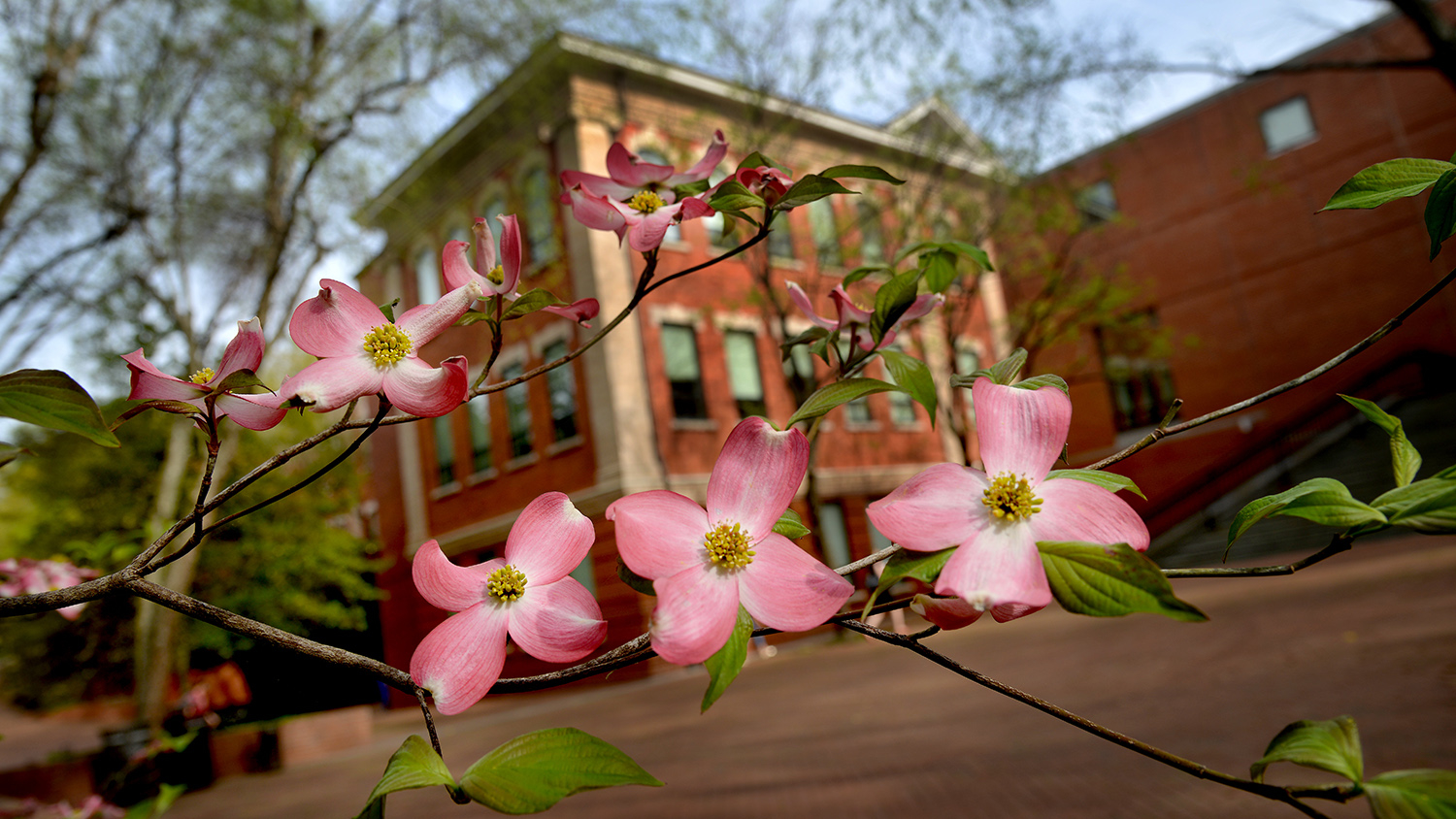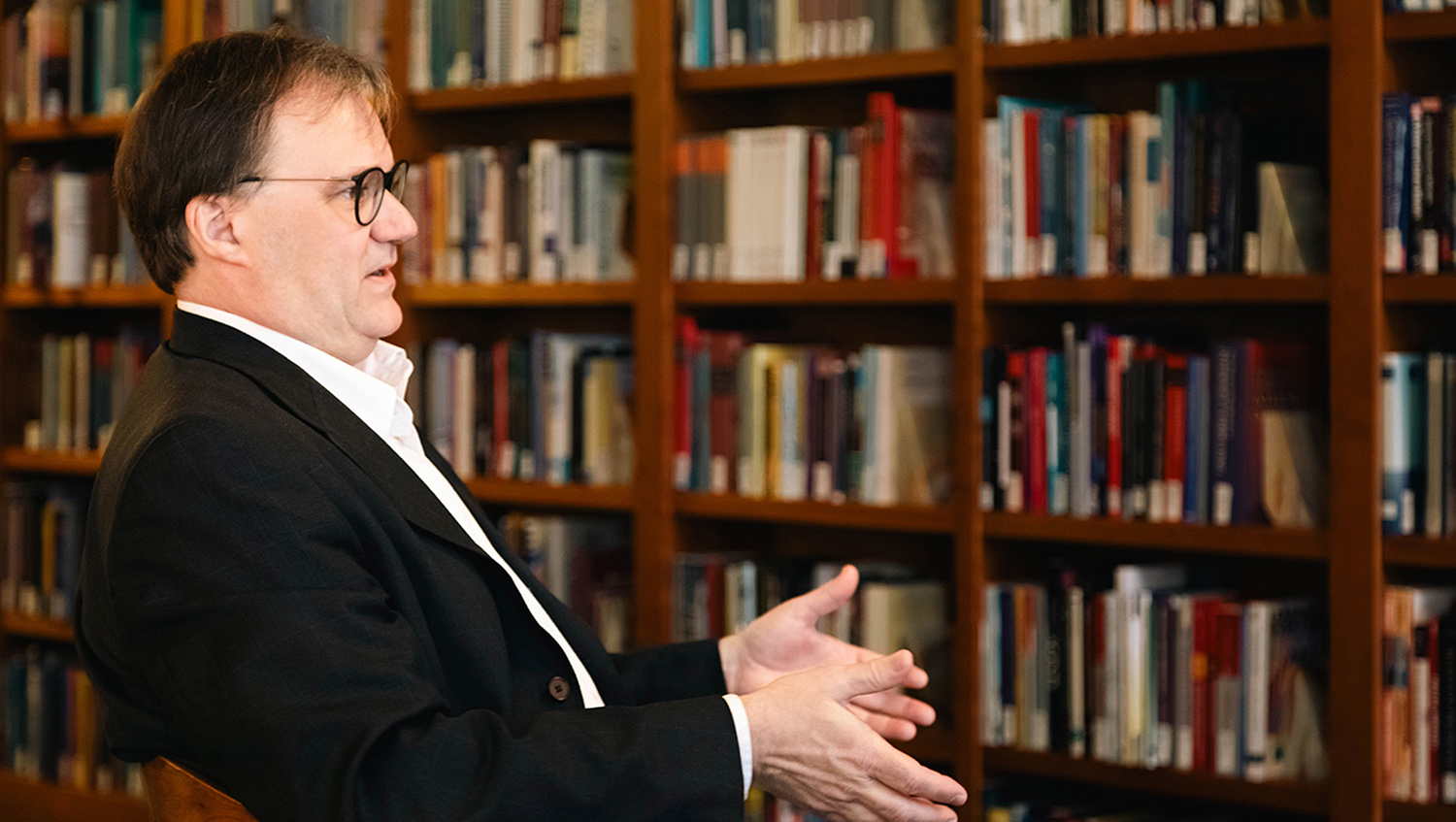Finding King’s Speech

Editor’s Note: Earlier versions of this article appeared in our print magazine, Accolades, and online.
For years, Rocky Mount citizens have told tales about hearing the first rendition of Martin Luther King Jr.’s “I Have a Dream” speech.
On Nov. 27, 1962, nine months before the refrain echoed across the National Mall during the March on Washington, King’s words rang out in the gymnasium of a segregated high school in the small North Carolina town.
In a 55-minute address to a packed house of 1,800 residents, King delivered — for the first time — phrases that would ultimately inspire millions.
“So my friends in Rocky Mount, I have a dream tonight,” King declared.
Five decades later, that speech has a new, vastly larger audience. After uncovering and restoring a recording of King’s Rocky Mount speech, NC State English professor Jason Miller is airing the address for the world to hear.
Miller created kingsfirstdream.com, a website where visitors can listen to the audio and read a full transcript, accompanied by 89 interactive annotations that explain the speech’s historical and literary contexts. He hopes the site will draw researchers and students of English, rhetoric, history, politics and social sciences.
Miller started looking for the tape a few years back while studying the connection between King’s speeches and the poetry of Harlem Renaissance leader Langston Hughes. Miller’s research, which led him to write Origins of the Dream: Hughes’s Poetry and King’s Rhetoric (University Press of Florida, 2015), took him to libraries across the nation.
However, his most significant find came only an hour and a half from his NC State campus office, at Rocky Mount’s Braswell Memorial Library. A librarian there told Miller she found a reel of acetate tape sitting on her desk when she returned from vacation. Inside a box holding the 1.5 mm recording was a note penned in elegant handwriting: “Dr. Martin Luther King speech — please do not erase.”
When he played it, Miller says he knew he’d found what he was looking for: the complete 1962 Rocky Mount speech, which captures King at the height of his oratorical prowess. Although the recording is similar to King’s 1963 address in Washington, Miller said it’s “incredibly unique,” marking a high point in King’s development of the “dream” motif as a rhetorical device.
Miller should know. He’s spent much of the past decade charting the evolution of King’s “dream” and how it was influenced by Hughes’ poetry.

King-Hughes connection
While it’s clear that Hughes “sparked King’s own poetic self,” Miller says, that influence is hard to trace. Miller pored over Hughes’ poetry and King’s speeches from the early 1960s.
“The ideas from Hughes’ poetry are there, but they’re submerged,” Miller says.
To chart the connections between Hughes and King, Miller bought a piece of butcher’s paper three feet tall and 14 feet long on which he documented “letters exchanged, poems sent, times they met.” Working backward from King’s famous March on Washington address, Miller made a notation for every time King uttered the word “dream” in a speech, publication or correspondence.
The exercise brought Miller back to a speech King delivered on Aug. 11, 1956, when King spoke of the dream while paraphrasing Hughes’ 1941 poem “I Dream a World.” In 1959, King riffed on Hughes’ poem “Harlem (Dream Deferred),” when talking about shattered dreams during a speech. And in January 1960, King had Hughes write a poem about dreams for a special event.
But unlike several speeches that lightly touched on the dream theme, Miller said the Rocky Mount speech is far more than a paraphrased version of Hughes’ ideals; it’s King’s own dream, fully developed and articulated.
“This is the turning point,” Miller says — where Hughes’ utopian ideal is transformed into King’s bold vision for a just society. “He thought of himself in artistic terms, not simply as an orator,” Miller said of King. “When he got up to deliver a speech, he thought of it as his chance to perform. It wasn’t just rhetoric. It wasn’t just a speech. It was a way of bringing poetry into the world of public speaking and communication.”
The King-Hughes Connection
I dream a world where man
No other man will scorn,
Where love will bless the earth
And peace its paths adorn.
I dream a world where all
Will know sweet freedom’s way,
Where greed no longer saps the soul
Nor avarice blights our day.
A world I dream where black or white,
Whatever race you be,
Will share the bounties of the earth
And every man is free,
Where wretchedness will hang its head
And joy, like a pearl,
Attends the needs of all mankind —
Of such I dream, my world!
— “I Dream a World” by Langston Hughes
“So my friends in Rocky Mount, I have a dream tonight. It is a dream rooted firmly in the American dream. I have a dream that one day down in Sasser County, Georgia, where they burned two churches down a few days ago because Negroes wanted to register to vote, one day right down there little black boys and little black girls will be able to join hands with little white boys and little white girls and walk the streets as brothers and sisters. I have a dream.”
— Excerpt from King’s 1962 speech in Rocky Mount


